Everything you need to know about cannabis in Thailand
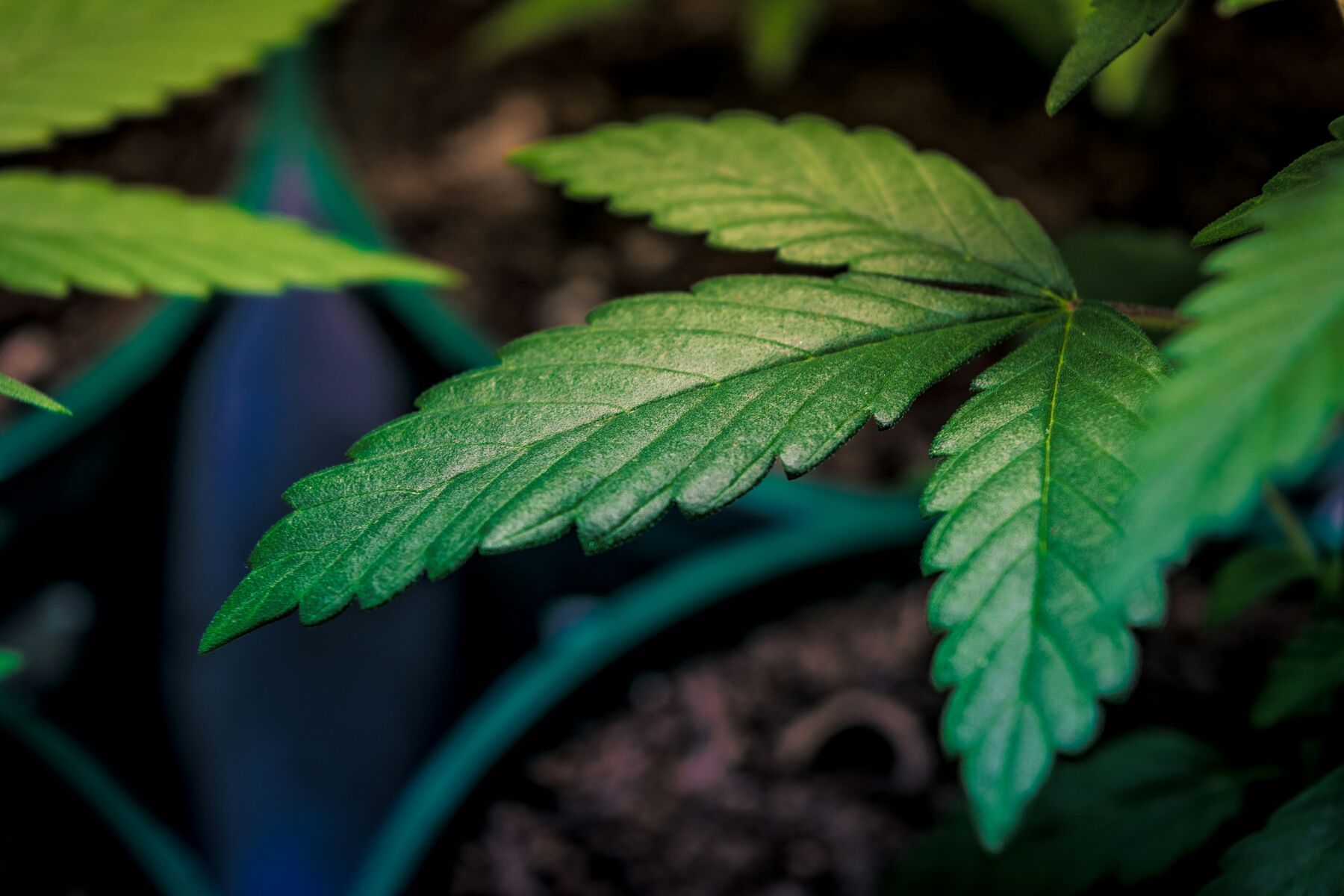
As Thailand’s recreational cannabis use is set to be banned at the end of 2024, the country’s key focus is shifting towards healthcare workers and research institutions. This rapid change in the cannabis market presents both challenges and opportunities for investors and entrepreneurs. In this fast environment, understanding the latest development and potential implications is crucial for making business decisions. Navigating this green maze might seem challenging. Here is everything you need to know about cannabis in Thailand
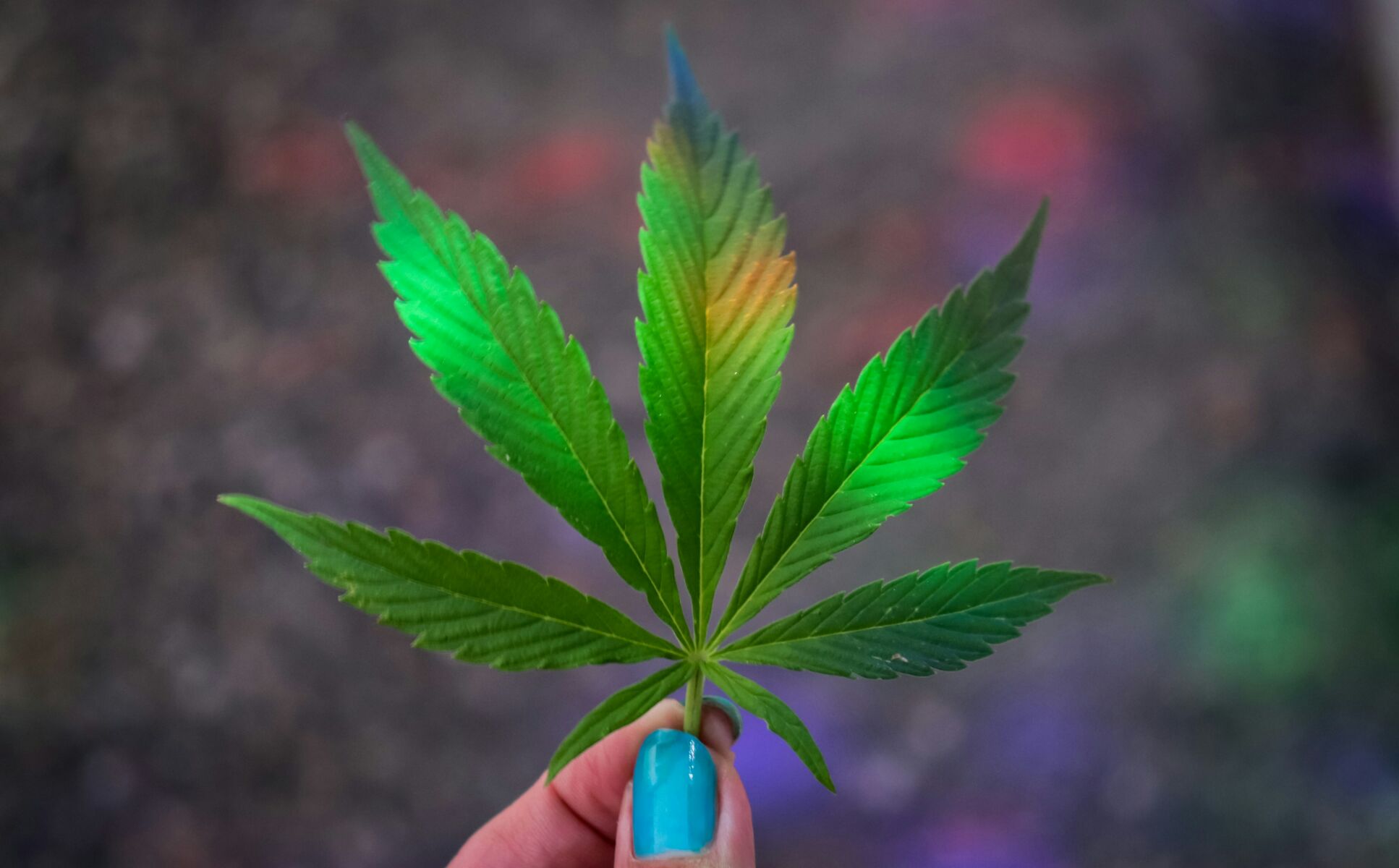
Thailand was a pioneer in medicinal legalisation, especially in Asia. In 2018 medicinal use of cannabis was allowed shortly followed by legilisation of recreational use as well. However things are taking a U turn as Thailand’s Health Minister Cholnan Srikaew announced the plan to ban recreational cannabis use in an interview with Reuters on February 28, 2024.
Understanding these aspects ensures you stay compliant while exploring the potentials of cannabis in Thailand. Recent legal changes and emerging research emphasise the plant’s medical benefits while aiming to prevent misuse. Before we get into anything cannabis holds deep cultural and religious roots in Thailand, dating back to the Ayutthaya Kingdom.
Historical and religious significance
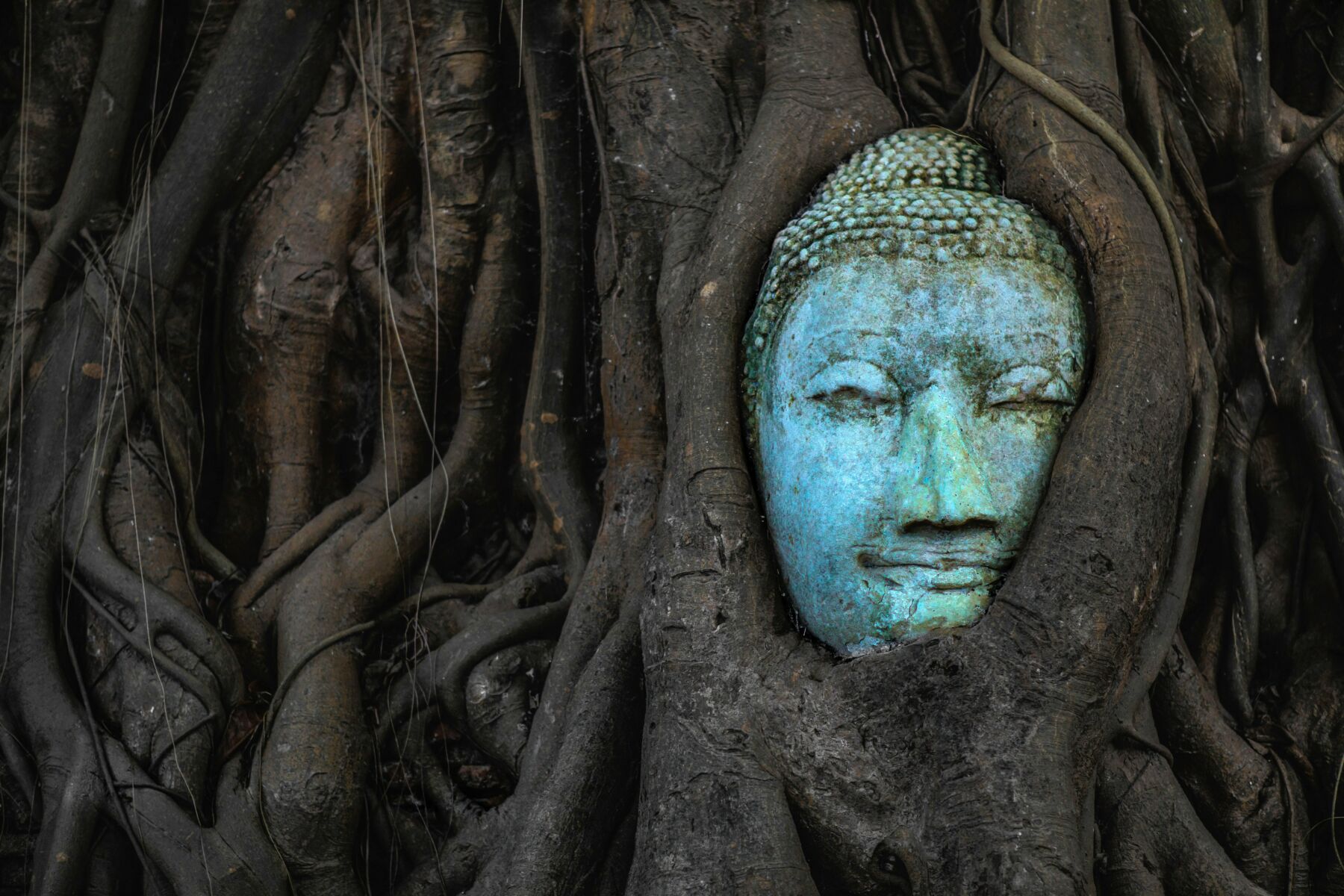
Cannabis, known as “กัญชา” (ganja) in Thai, has been part of Thai culture for centuries. Historically, the plant was essential to traditional ceremonies, cuisine, and medicine. Its use in popular dishes like “Kuay Teow Ruea” and its medicinal applications for pain relief and relaxation solidified its place in everyday life.

Despite its deep-rooted cultural ties, cannabis faced strict legal regulations in the early 20th century, culminating in its classification as an illegal substance by the 1970s. This shift was influenced by international pressures and concerns about public health. As of 2024, recreational cannabis use faces strict penalties, including punishment such as fines and potential prison sentences for unauthorised use and cultivation. This shift underscores a growing acceptance of cannabis’s health value within a well-regulated framework.
Legalisation of cannabis in Thailand
Recreational cannabis remains an illegal drug trade. However, medicinal cannabis has been legal since 2018. As of June 9, 2022, cannabis extracts containing less than 0.2% THC are decriminalised. Recreational use is increasingly restricted, with stricter regulations to prevent unauthorised cultivation and consumption. The Thai government plans to relist cannabis as a narcotic by 2024, restricting its use to medical and research purposes only.
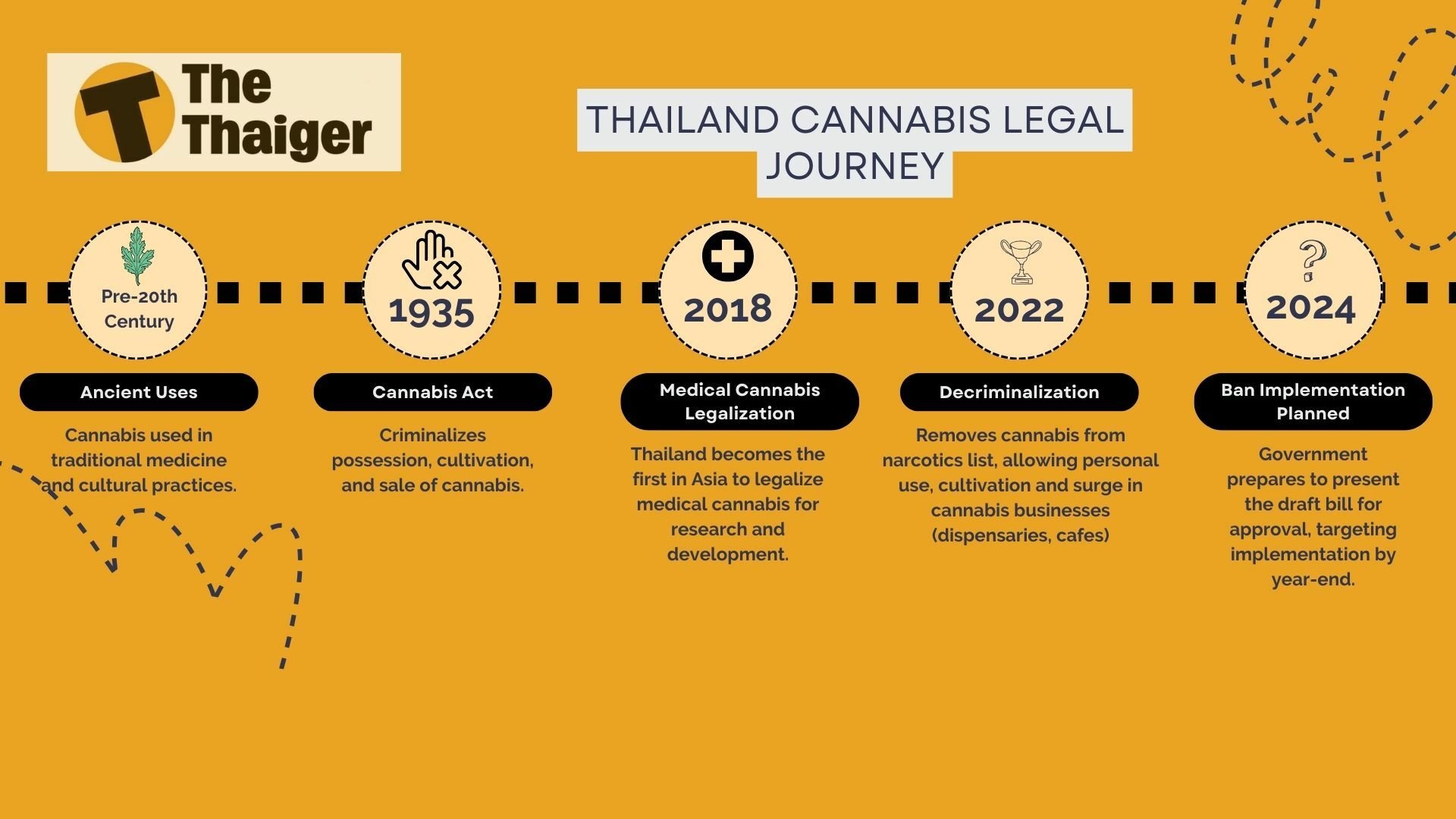
Current situation of cannabis
As Thailand moves towards stricter regulations for recreational cannabis, the country’s focus remains firmly on the medical use of the plant. Supported by robust research and regulated frameworks, medicinal cannabis is gaining traction. The industry’s economic impact, particularly in rural areas, is undeniable.
The government’s efforts to balance economic benefits with public health concerns are evident in the increasingly restrictive policies governing recreational use. As 2024 draws near, expect further tightening of regulations to align with the country’s emphasis on medical and research applications.
Medical uses of cannabis in Thailand
The medical cannabis programmed in Thailand continues to grow, providing relief for various health conditions under strict regulations. You can now look into the medical benefits of cannabis, legal uses, and the process for obtaining prescriptions.
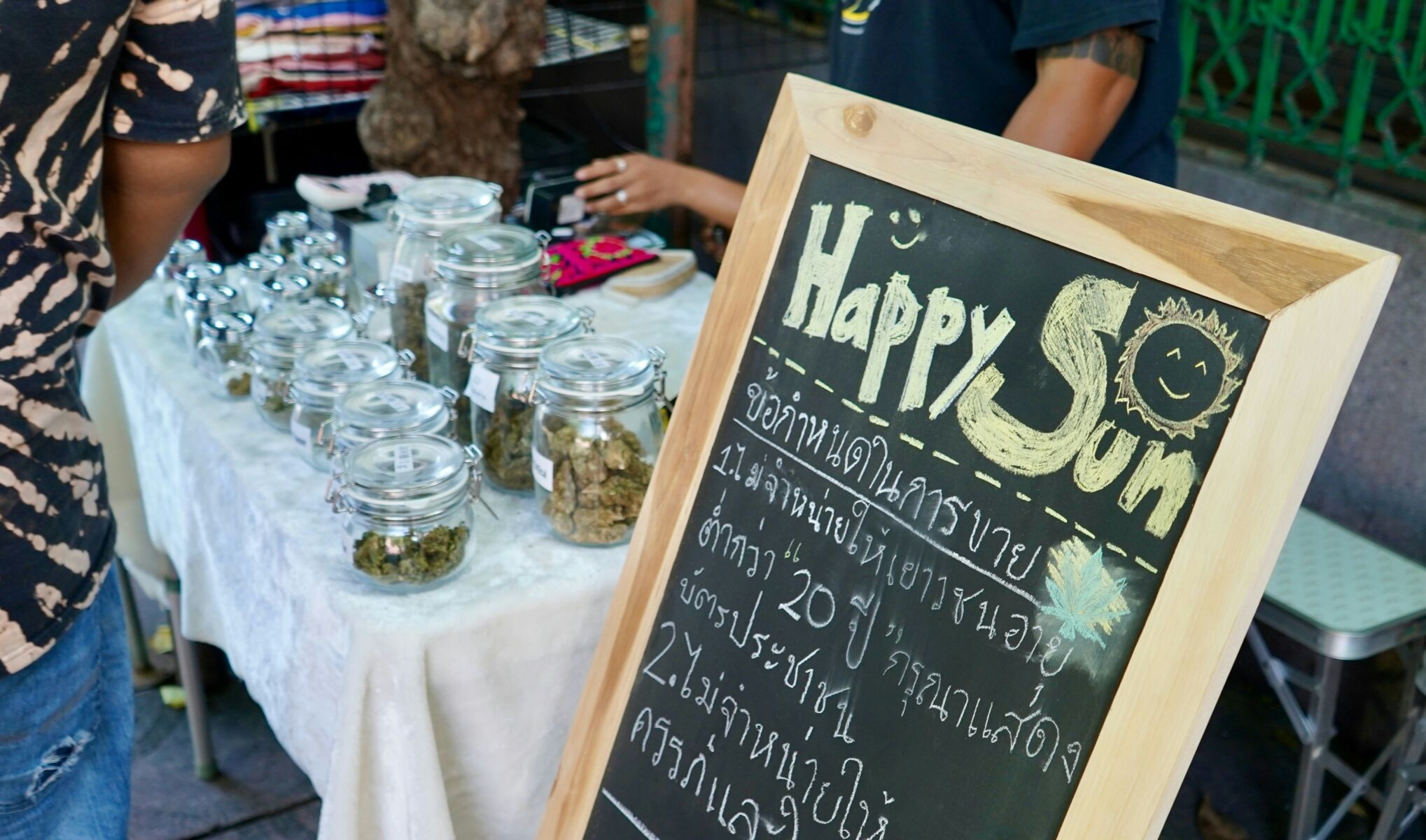
Overview of the medical cannabis programmed in Thailand
Thailand, being the first country to legalise medicinal cannabis back in 2018, aims to provide relief to patients suffering from specific medical conditions. To use medical cannabis legally, you must have a proper prescription from a licensed healthcare provider. The law restricts use to medical and research purposes only, with penalties for unauthorized use or cultivation. Regulatory entities like the Thai Ministry of Public Health (MoPH) oversee the strict licensing required for cultivation and distribution, ensuring safe and controlled usage. However things have been changing since the decriminilisation of cannabis in 2022.Well, how does one even obtain a proper prescription.
Conditions that qualify for medical cannabis treatment
The Ministry of Public Health has given the approval for using medical cannabis to treat several conditions. For instance, it’s really helpful for chronic pain, particularly when other treatments have fallen short, like in cases of arthritis and neuropathy. Cancer patients undergoing chemotherapy can also benefit from cannabis to combat nausea and vomiting. People dealing with muscle spasms due to multiple sclerosis might find relief too. Making sure you obtain the right document and taking the right steps is very crucial for cannabis users.
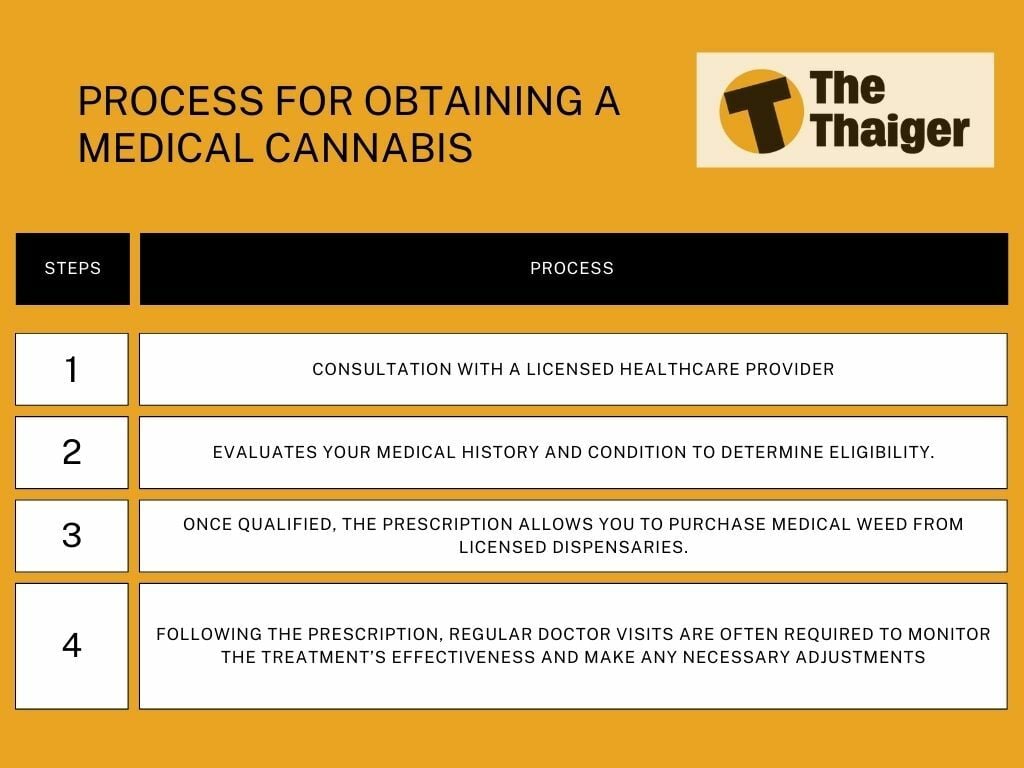
Growing cannabis in Thailand
The cultivation of cannabis in Thailand has witnessed rapid growth since the decriminalisation in 2022. The relaxed laws have transformed the perspectives , inviting farmers to tap into this profitable industry, often referred to as “Cannabis Thailand.”
Weather and soil conditions for cannabis cultivation in Thailand
Thailand’s tropical weather benefits cannabis cultivation. High temperatures and ample rainfall create ideal conditions. The fertile soil found in many areas further enhances growth. However, the rainy season’s high humidity levels can pose risks like mold. Careful monitoring is essential to maintain crop health.
In Northern regions, the cooler weather during the winter months creates an excellent environment for certain cannabis strains. Southern Thailand, with its consistent warmth and moisture, supports more versatile cultivation. Ensure you adapt techniques to regional weather variations to maximise yield. Consider sun-grown cannabis as an option as it’s the most natural cultivation process. More about it here
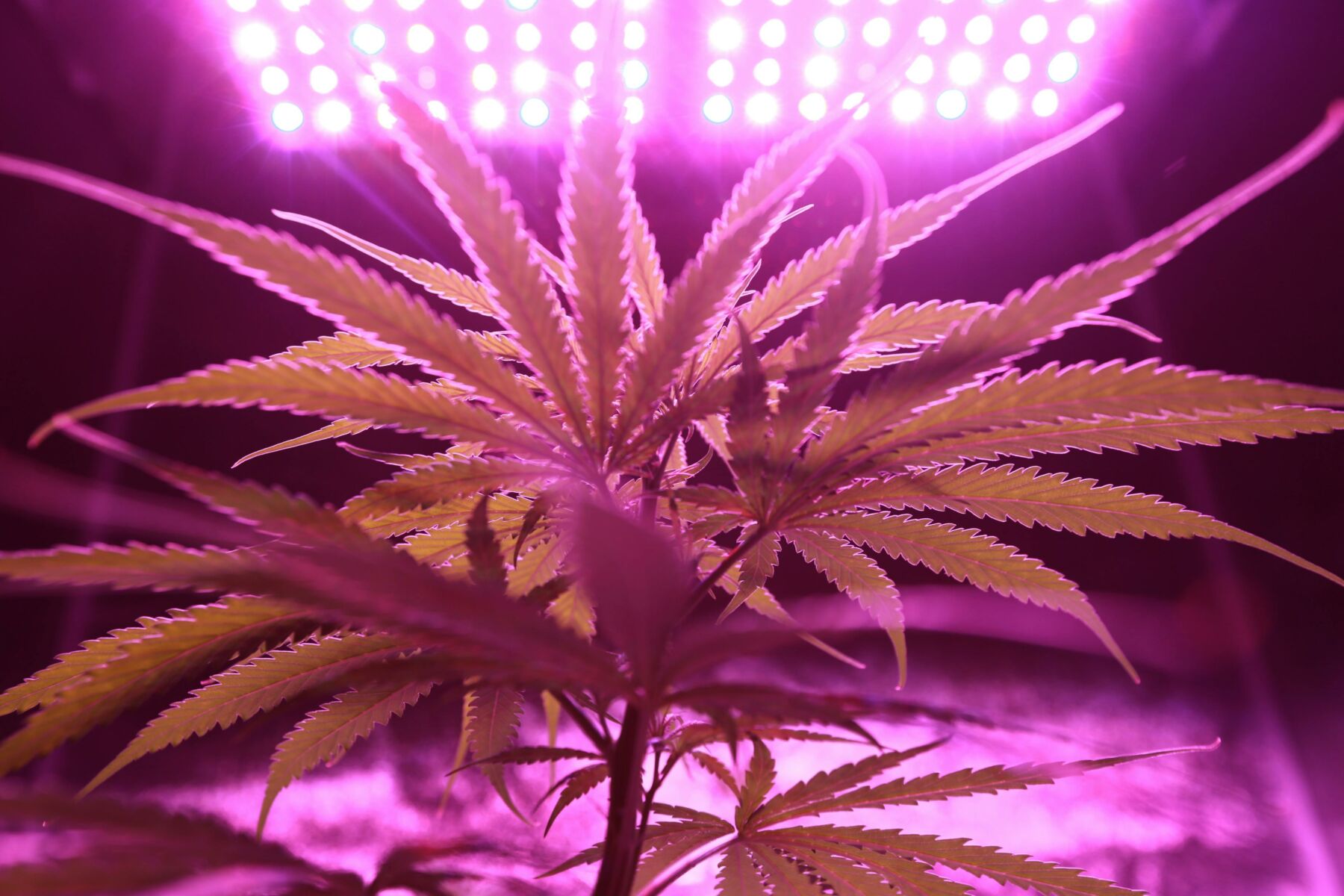
However, aiming for a higher THC percentage may not work well with the harsh outdoor environment. Cannabis farmers adapt to indoor growing, allowing farmers to carefully take note of the condition of the plant and providing the plant with needed vitamins.
Legal requirements for growing cannabis in Thailand
The legal framework for cannabis in Thailand includes strict regulations. Cultivation for personal use requires registration with the Thai Food and Drug Administration (FDA). Commercial growers need a license issued under strict criteria.
Medical cannabis production demands stricter compliance levels. Growers must follow the guidelines set by the Ministry of Public Health, engaging with licensed entities exclusively. Recreational use, though prevalent, remains legally restricted, reflecting the country’s focus on medical and research applications.
Cannabis growers must follow a set of guidelines by the Ministry of Public Health. However growing with the intent of recreational use, though prevalent, remind legally restricted. This reflects the focus on medical and research applications Thailand is pushing the industry toward. For smooth proper operation, cannabis farmers are highly recommended to follow the guideline and to make sure every legal document is registered. Penalties for illegal cultivation and distribution are severe. Possessing unlicensed cannabis can lead to hefty fines or imprisonment.
To grow a proper top-shelf cannabis strain it is important to monitor humidity levels carefully. Using dehumidifiers or fans reduces mold risks during the rainy season. Organic fertilisers enhance soil quality and promote healthier plant growth. Integrate pest control measures as tropical climates attract various pests. Natural predators and organic pesticides protect the crops without chemical damage.
Selling cannabis in Thailand
Selling cannabis in Thailand involves a detailed and regulated process. Understanding the specific requirements ensures compliance and the successful operation of your cannabis business
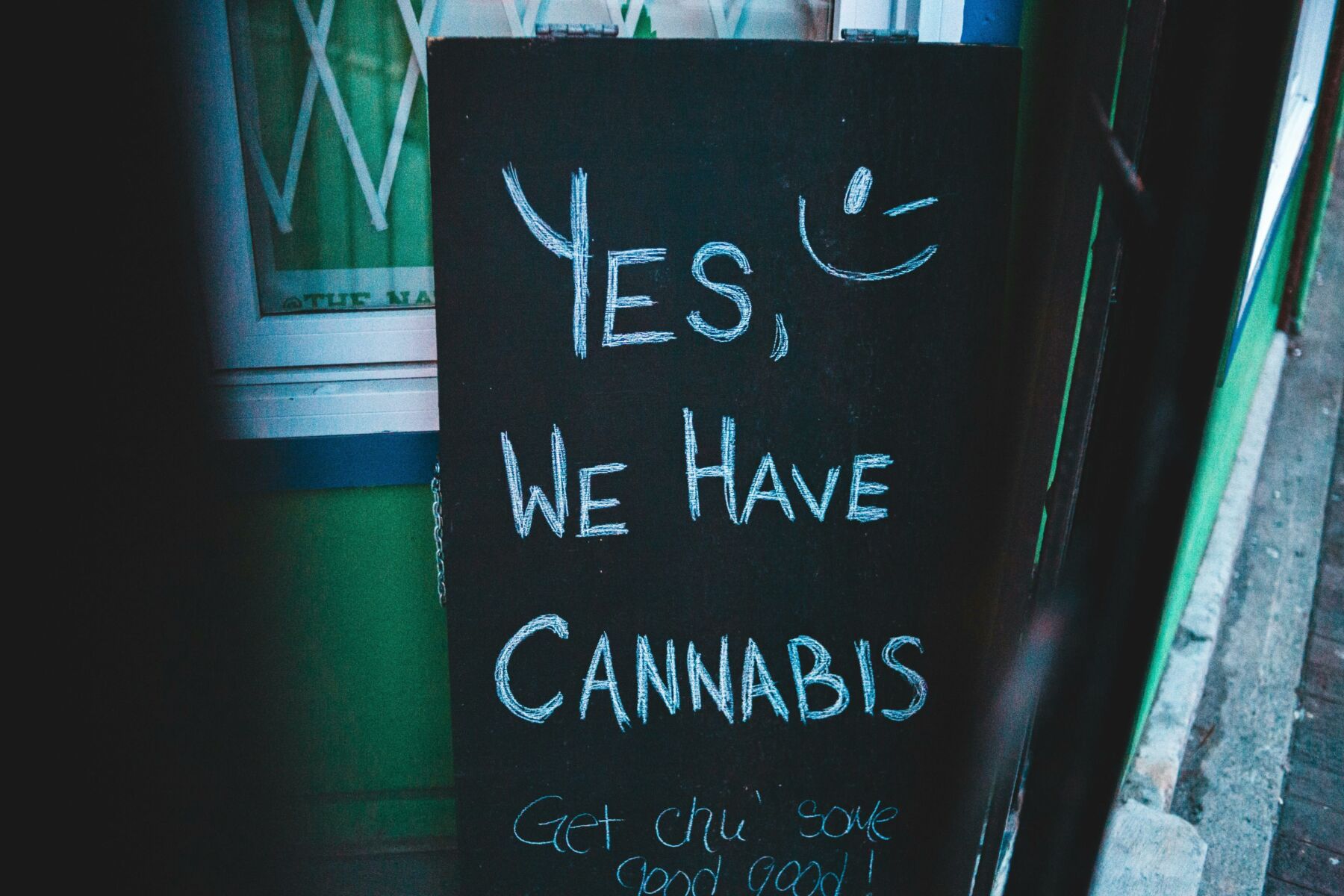
To sell cannabis in Thailand, you’ll need a cannabis sales license. This license is obtained by submitting an application to the Department of Thai Traditional and Alternative Medicine in Bangkok. If you’re based outside Bangkok, submit your application to the Provincial Public Health Department.
Only Thai individuals or companies can apply for this license. This rule excludes foreign individuals and foreign-owned businesses unless they meet strict criteria. Specifically, an applicant must have a capital of 100,000,000 Baht or more, along with a legitimate Thai partner, shareholder, or director. This regulation ensures that cannabis retail and wholesale activities are controlled and limited to eligible parties. While making sure locals have oppositeness and job security.
Submitting all the necessary documents, including proof of identity, business registration details, and other supporting information Incomplete or incorrect submissions can delay or nullify your application. Your application must be thorough and accurate .Also, the location of your business plays a crucial role. Ensure that your shop or distribution point complies with zoning laws and is situated away from schools, temples, and other sensitive areas. This compliance helps avoid potential legal issues and maintains community standards.

Penalties for violating cannabis laws in Thailand
Violating cannabis laws in Thailand leads to severe penalties. Smoking or vaping cannabis in public places results in fines up to 25,000 Baht (~US$700) and/or imprisonment for up to 3 months. Any recreational use of cannabis will be completely banned by the end of 2024, and violations will attract fines of up to 60,000 Baht. Additionally you must be at least 20 years old to buy, possess, or use cannabis. For pregnant and breastfeeding women, cannabis use is illegal unless authorized by a doctor which is extremely unlikely. Medical cannabis, allowed only with a prescription, restricts usage to prescribed methods such as smoking or vaping. Cultivating cannabis without registering with the Food and Drug Administration can also lead to legal issues. The Thai government imposes right enforcement to maintain control and ensure responsible use.
Buying and using cannabis in Thailand
With the evolving laws, navigating cannabis in Thailand can be tricky but rewarding. Understanding the legal and cultural framework is essential. It is highly recommended to smoke at home where it’s the most comfortable and safest. There are plenty of way to use cannabis, joints are very beginner friendly but bong should be reserved for the experienced. Thailand have cannabis stalls almost every corner of the road but its best to stick to the trusted dispensaries with proper certification. Doing this will guarantee a proper and pure high.
Popular cannabis-related attractions in Thailand

Thailand offers various cannabis-friendly activities. Find 420-friendly cafes scattered throughout the city, offering a relaxed setting where you can enjoy cannabis-infused drinks and edibles. Look for cannabis-themed events, which attract both locals and tourists, featuring music, food, and cannabis products. These markets provide a unique experience to look into various cannabis products while engaging with the local tradition.

Bangkok
Dispensaries and cannabis cafe
Bangkok is at the forefront of cannabis culture, featuring numerous dispensaries and cafes. Here are some of our top picks. Notable spots include the Leaf Cannabis Cafe, which offers a menu of THC and CBD-infused drinks and snacks, and MD-82 Cafe, known for its unique aero plane theme and cannabis-infused beverages served in bongs.
Wellness Centers
CBD-infused massages and wellness treatments like Green Ganesha are popular in the city, providing a blend of relaxation and cannabis enjoyment.
Culinary Experiences
Visitors can indulge in cannabis-infused cuisine at various restaurants, enhancing their culinary journey with a unique flavour.
Chiang Mai

Highland Atmosphere
Chiang Mai offers a serene environment ideal for cannabis enthusiasts. The city features guided tours of local marijuana farms and wellness retreats that incorporate cannabis into yoga and massage sessions. If you don’t know which place to go, check out our guide on where you can get cannabis in Chiang Mai.
Local and Cultural Engagement
Tourists can engage with local communities advocating for responsible cannabis use and sustainable farming practices, deepening their understanding of Thai cannabis culture.
Phuket

Beachside Lounges
Phuket is known for its vibrant nightlife and stunning beaches, and many cannabis-friendly establishments are located there. Beachside smoking lounges and cannabis-infused spa treatments are popular among visitors looking to unwind.
Cannabis-themed Dining
Restaurants such as Rustic And Blue – By The Sea serve cannabis-infused dishes and drinks, providing a unique dining experience with scenic views.
Tips for consuming cannabis in Thailand
Understanding how to consume cannabis in Thailand can enhance your experience while ensuring you stay within legal boundaries.
Eligibility rules indicate that only individuals over 20 years old not pregnant or breastfeeding can legally consume cannabis. Smoking is permitted only in private residences, keeping you away from hefty fines or imprisonment. Consumption of cannabis-infused edibles is allowed in licensed restaurants, making it essential to choose the right venues and registering with the Food and Drug Administration is mandatory if you wish to cultivate edible cannabis
Never smoke in public areas, as this can lead to penalties up to 25,000 Baht and imprisonment for up to 3 months. Over 5,000 cannabis outlets in urban hubs like Bangkok, Chiang Mai, and Pattaya offer flowers, pre-rolled joints, edibles, and CBD oil. Prohibited activities include transporting cannabis or seeds across borders and possessing extracts with more than 0.2% THC without authorisation.
Cannabis festivals & gathering in Thailand
Several notable events will shape Thailand’s cannabis industry in 2024. If you love to get in touch with Thailand cannabis culture keep a head up for event and pop up. But if you are lookin for the business side of cannabis in Thailand host annual conferences focus on medicinal cannabis advancements, regulatory updates, and industry trends. These gatherings attract global experts and local stakeholders, fostering knowledge exchange and collaboration so don’t forget to check them out too
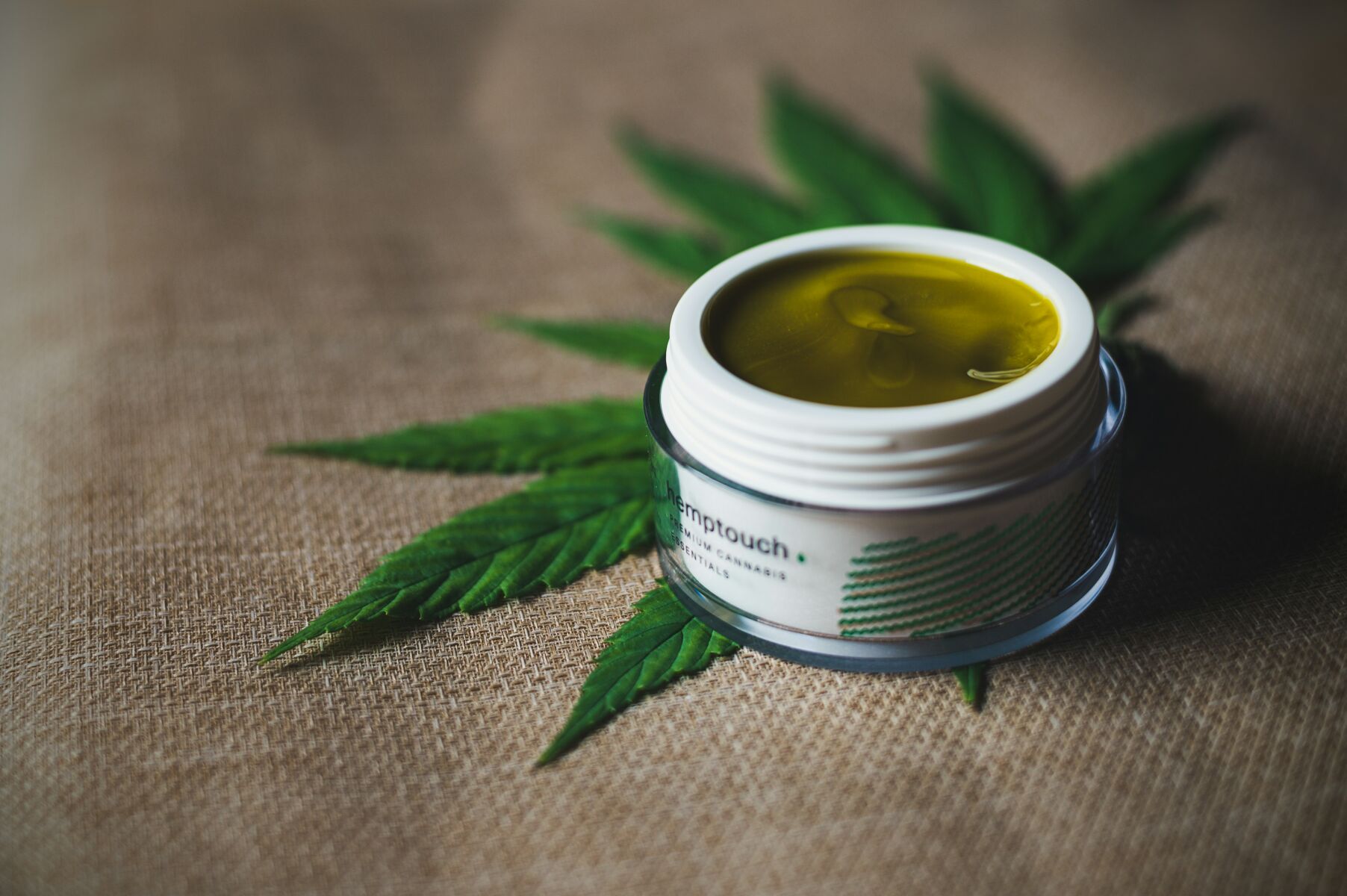
Latest Thailand News
Follow The Thaiger on Google News:


























